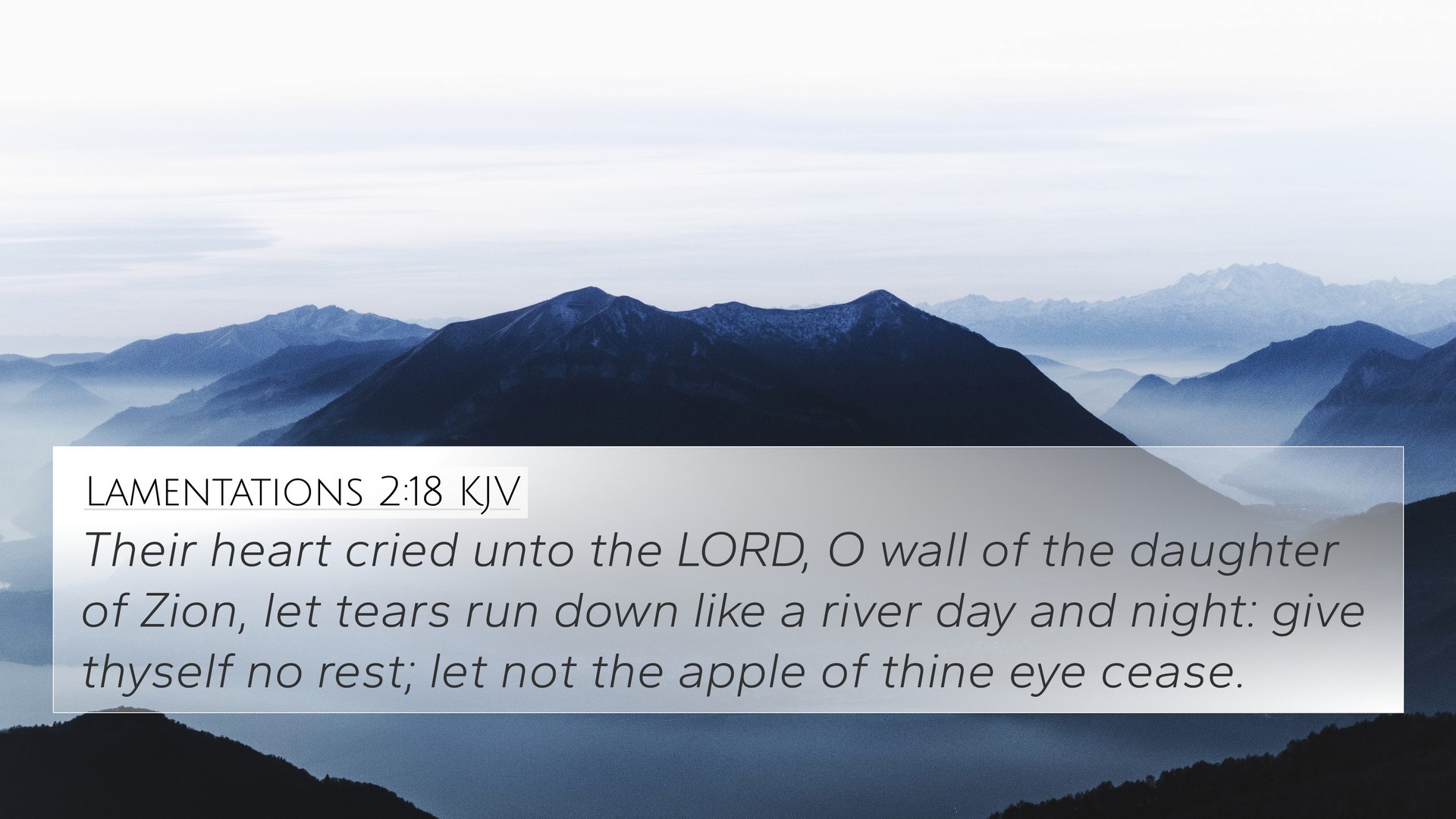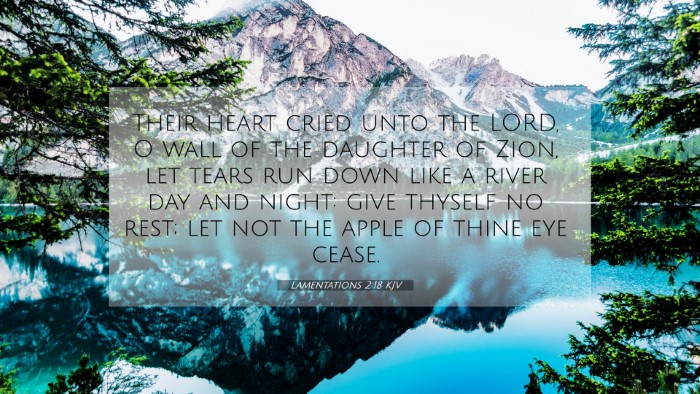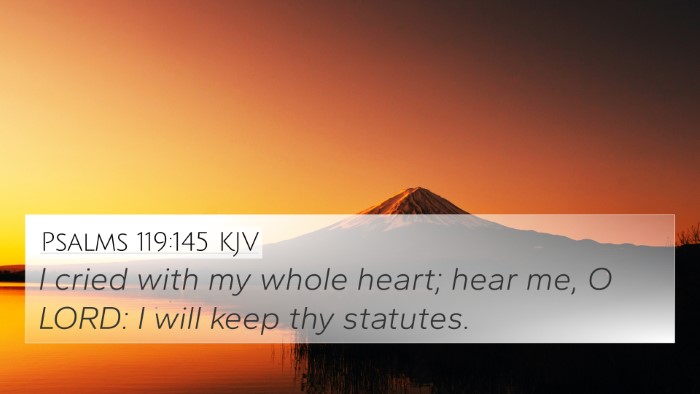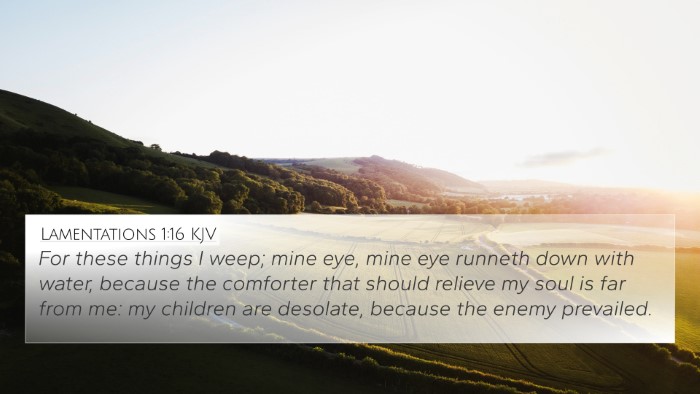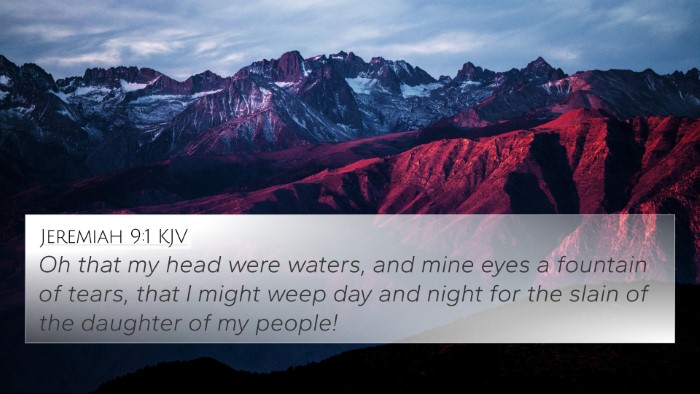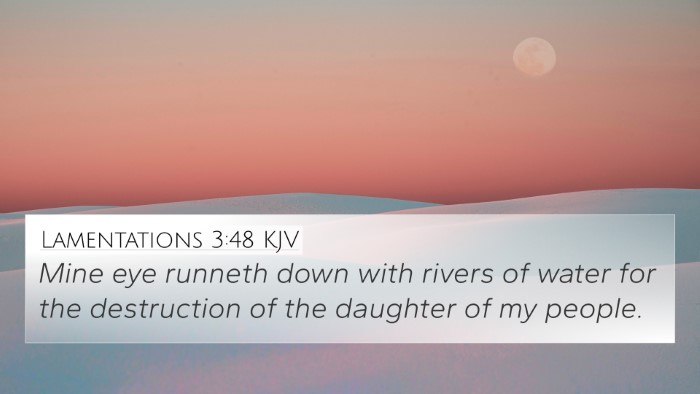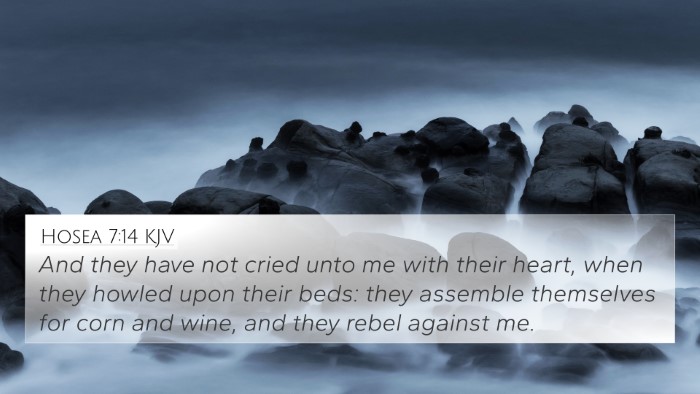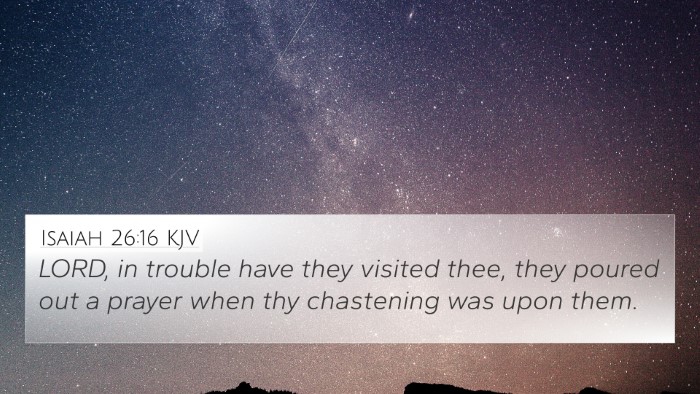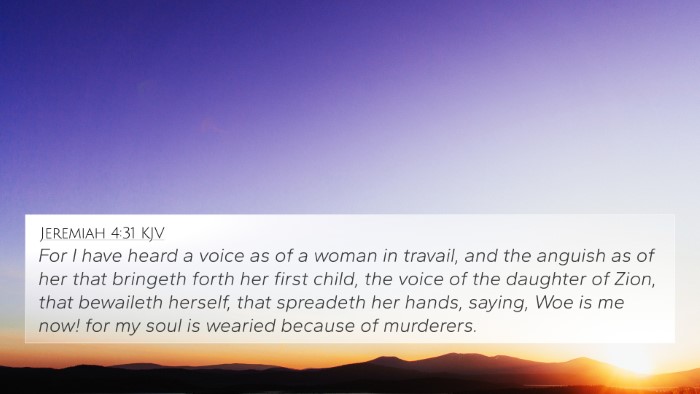Lamentations 2:18 - Meaning and Interpretation
Lamentations 2:18 states, "Their heart cried unto the Lord, O wall of the daughter of Zion, let tears run down like a river day and night: give thyself no rest; let not the apple of thine eye cease." This verse is a poignant appeal to God in the midst of suffering and is imbued with deep emotional imagery. Below, we explore the meanings derived from various public domain commentaries.
Contextual Overview
The Book of Lamentations is traditionally attributed to the prophet Jeremiah, reflecting the heart-wrenching aftermath of Jerusalem's destruction. This particular verse highlights the desperation of the people of Jerusalem, emphasizing their cries as a plea for divine intervention amidst pain and despair.
Commentary Insights
-
Matthew Henry's Commentary: Henry emphasizes the earnestness of the people's lamentation. The "heart cried" indicates that their prayers are deeply felt and emotional. The wall symbolizes the city itself, and their pleas serve as a reminder of their plight and need for God's mercy.
-
Albert Barnes' Notes: Barnes points out the metaphor of tears as a river, representing an overwhelming flood of grief. The appeal to the 'wall of the daughter of Zion' suggests both physical protection and a call for God’s attention to their suffering. This verse indicates not only a personal lament but also collective mourning.
-
Adam Clarke's Commentary: Clarke notes that this verse encapsulates the sorrow and tears of the people of Zion. The reference to the "apple of thine eye" underscores their special status in God's eyes, invoking a deep sense of longing for restoration. Clarke highlights the theological implications of this relationship—one of covenant loyalty and love, even in despair.
Thematic Connections
Lamentations 2:18 resonates with numerous themes found throughout the Bible. These themes include divine compassion, human suffering, and the faithful pleading for restoration. The emotional depth of this verse draws parallels with many other biblical texts where the themes of sorrow and divine intervention are prominent.
Bible Verse Cross-References
- Psalm 6:6-7: The psalmist expresses deep mourning and weeping, resonating with Lamentations’ theme of grief.
- Isaiah 30:19: This verse promises that God will not forsake those who cry out for help, similar to the pleading in Lamentations.
- Jeremiah 29:12-13: A call to seek the Lord, reinforcing the notion of reaching out during times of distress.
- Psalm 126:5-6: A promise that those who sow in tears will reap in joy, mirroring themes of sorrow giving way to hope.
- 2 Corinthians 1:3-4: The God of all comfort is invoked here, bridging the connection of divine assurance amid suffering.
- James 5:16: Encourages believers to pray earnestly for one another, linking communal support in trials.
- Matthew 5:4: "Blessed are those who mourn," reflecting the value and holy nature of grief in the Christian journey.
- Psalms 34:18: "The Lord is close to the brokenhearted," paralleling the intersection of despair and divine proximity.
- 1 Peter 5:7: A reminder to cast all anxieties on Him, echoing the call for God’s attention in times of trouble.
- Hebrews 4:15-16: Encouragement to approach God’s throne in our weakness, linking to the heartfelt plea in Lamentations.
Understanding Through Cross-Referencing
Cross-referencing Biblical texts offers a rich tapestry of understanding, enhancing the interpretation of Lamentations 2:18. Utilizing tools for Bible cross-referencing, such as concordances or study guides, can deepen insights. For instance, one could compare the lament in Lamentations with psalms that express sorrow to grasp the multifaceted nature of grief in Scripture.
Conclusion
Lamentations 2:18 encapsulates a profound cry for help, illustrating the intersection of sorrow, hope, and faith in God’s character. Through comparative Bible verse analysis and connections between Bible verses, we comprehend how scripture continually invites believers to process suffering amidst the promise of divine comfort and restoration.
